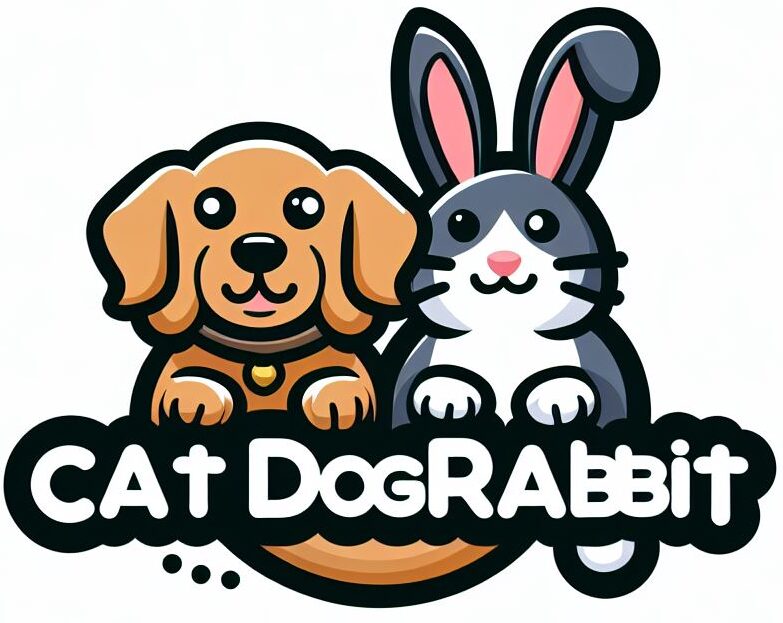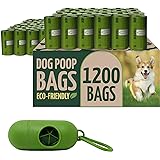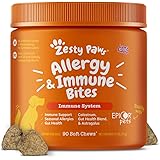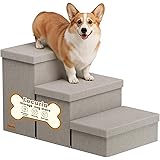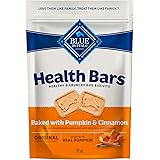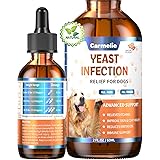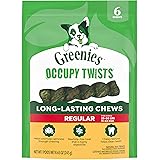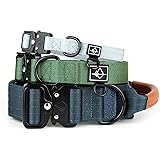
Spark Paws Dog Hoodie – Premium Dog Sweater for Small, Medium, and Large Dogs | Warm Outfits for French Bulldogs, Pitbull, Puppy, Winter Jacket Alternative - 90s Retro Sky Dye - XL
$22.99 (as of 02/08/2026 14:12 GMT +00:00 - More infoProduct prices and availability are accurate as of the date/time indicated and are subject to change. Any price and availability information displayed on [relevant Amazon Site(s), as applicable] at the time of purchase will apply to the purchase of this product.)Milk-Bone MaroSnacks Small Dog Treats With Bone Marrow, 40 Ounce Container
$11.48 (as of 02/08/2026 14:07 GMT +00:00 - More infoProduct prices and availability are accurate as of the date/time indicated and are subject to change. Any price and availability information displayed on [relevant Amazon Site(s), as applicable] at the time of purchase will apply to the purchase of this product.)Mayerzon Dog Muzzle to Prevent Biting Scavenging Chewing, Soft Mesh Puppy Muzzles for Medium Large Sized Dogs, Breathable, Reflective, Adjustable Mouth Guard for Grooming Walking Training (M, Black)
$11.99 (as of 02/08/2026 14:07 GMT +00:00 - More infoProduct prices and availability are accurate as of the date/time indicated and are subject to change. Any price and availability information displayed on [relevant Amazon Site(s), as applicable] at the time of purchase will apply to the purchase of this product.)Reli. Biodegradable Dog Poop Bags w/Holder (1200 Count - 80 Rolls Bulk) | Leash Clip Dispenser | 9x13" Large Dog Bags for Poop | Green Eco-Friendly Oxobiodegradable Waste Disposal Refills (Unscented)
$22.49 (as of 02/08/2026 14:07 GMT +00:00 - More infoProduct prices and availability are accurate as of the date/time indicated and are subject to change. Any price and availability information displayed on [relevant Amazon Site(s), as applicable] at the time of purchase will apply to the purchase of this product.)Zesty Paws Dog Allergy Relief Chews, Dog Probiotics for Itchy Skin and Ears, Lamb, 90ct
$32.97 (as of 02/08/2026 14:07 GMT +00:00 - More infoProduct prices and availability are accurate as of the date/time indicated and are subject to change. Any price and availability information displayed on [relevant Amazon Site(s), as applicable] at the time of purchase will apply to the purchase of this product.)gogobunny 3X Stronger Waterproof Pet Blanket, Scratch Proof Furniture Protector for Dogs Cats, Reversible Cover 30x70 Inch, Dark Grey/Light Grey
$7.98 (as of 02/08/2026 14:12 GMT +00:00 - More infoProduct prices and availability are accurate as of the date/time indicated and are subject to change. Any price and availability information displayed on [relevant Amazon Site(s), as applicable] at the time of purchase will apply to the purchase of this product.)Milk-Bone Soft & Chewy Dog Treats, Beef & Filet Mignon Recipe, 25 Ounce
$14.47 (as of 02/08/2026 14:07 GMT +00:00 - More infoProduct prices and availability are accurate as of the date/time indicated and are subject to change. Any price and availability information displayed on [relevant Amazon Site(s), as applicable] at the time of purchase will apply to the purchase of this product.)Fecuria 3-Step Wide Dog Stairs with Hidden Storage 18" H, Joint-Friendly Pet Steps for High Bed Couch Window Car, Non-Slip Sturdy Pet Stairs for Small/Medium/Large Old Dogs Cats Up to 200lbs, Grey
$27.99 (as of 02/08/2026 14:07 GMT +00:00 - More infoProduct prices and availability are accurate as of the date/time indicated and are subject to change. Any price and availability information displayed on [relevant Amazon Site(s), as applicable] at the time of purchase will apply to the purchase of this product.)Blue Buffalo Health Bars Crunchy Dog Biscuits, Oven-Baked with Natural Ingredients, Pumpkin & Cinnamon, 16-oz Bag
$4.98 (as of 02/08/2026 14:07 GMT +00:00 - More infoProduct prices and availability are accurate as of the date/time indicated and are subject to change. Any price and availability information displayed on [relevant Amazon Site(s), as applicable] at the time of purchase will apply to the purchase of this product.)Protein is an essential nutrient for dogs, playing a crucial role in their overall health and well-being. It is responsible for building and repairing tissues, producing enzymes and hormones, and supporting a strong immune system. In this blog post, we will explore the importance of protein in a dog’s diet and discuss the benefits of high protein dog food. We will also provide tips on how to choose the right high protein dog food for your pet and highlight the top ingredients to look for. Additionally, we will address common misconceptions about high protein diets for dogs and explain how they can improve your dog’s energy, stamina, muscles, bones, weight management, and allergies or skin conditions.
Key Takeaways
- Protein is an essential nutrient for dogs, as it helps build and repair tissues, supports the immune system, and provides energy.
- High protein dog food can improve your pup’s health by promoting muscle growth, boosting energy and stamina, and aiding in weight management.
- When choosing high protein dog food, look for quality sources of protein, such as meat, fish, and eggs, and avoid fillers and by-products.
- Top ingredients to look for in high protein dog food include animal-based proteins, healthy fats, and complex carbohydrates.
- Contrary to popular belief, high protein diets are not harmful to dogs and can actually benefit those with allergies and skin conditions.
Understanding the Importance of Protein in Your Dog’s Diet
Protein is made up of amino acids, which are the building blocks of life. It is essential for dogs because it provides the necessary nutrients for growth, repair, and maintenance of their bodies. Protein plays a vital role in the formation of muscles, organs, skin, hair, and nails. It also helps to regulate metabolism and supports the immune system.
There are different types of protein that dogs require in their diet. Animal-based proteins such as chicken, beef, fish, and eggs are considered complete proteins because they contain all the essential amino acids that dogs need. Plant-based proteins such as soybeans and lentils are also beneficial but may not provide all the necessary amino acids. It is important to provide a balanced diet that includes a variety of protein sources to ensure that your dog gets all the essential amino acids they need.
Benefits of High Protein Dog Food for Your Pup’s Health
Feeding your dog a high protein diet can have numerous benefits for their health. Firstly, it can help to maintain a healthy weight. Protein is more satiating than carbohydrates or fats, meaning that it keeps your dog feeling fuller for longer. This can prevent overeating and help to manage their weight. Additionally, a high protein diet can help to build and maintain lean muscle mass, which can increase your dog’s metabolism and promote weight loss.
A high protein diet can also improve your dog’s energy levels and stamina. Protein provides the necessary fuel for physical activity and can help to support an active lifestyle. It can also aid in muscle recovery after exercise, reducing fatigue and promoting faster healing.
Furthermore, a high protein diet can benefit your dog’s overall health. It can support a strong immune system, helping to fight off infections and diseases. Protein is also essential for the production of enzymes and hormones, which regulate various bodily functions. Additionally, it plays a crucial role in the repair and maintenance of tissues, promoting healthy skin, coat, and nails.
How to Choose the Right High Protein Dog Food for Your Pet
| Factors to Consider | Importance | Recommended Range |
|---|---|---|
| Protein Content | High | 25-30% |
| Animal Protein Source | High | Chicken, Beef, Lamb, Fish |
| Carbohydrate Content | Low | Less than 30% |
| Fat Content | Moderate | 10-15% |
| Added Supplements | Medium | Glucosamine, Chondroitin, Omega-3 Fatty Acids |
| Price | Medium | Depends on Brand and Quality |
When choosing a high protein dog food for your pet, there are several factors to consider. Firstly, you should look for a reputable brand that uses high-quality ingredients. Avoid products that contain fillers, by-products, or artificial additives. Instead, opt for dog foods that list real meat as the first ingredient.
It is also important to consider your dog’s specific needs and preferences. Some dogs may have allergies or sensitivities to certain proteins, so you should choose a dog food that is free from those ingredients. Additionally, you should take into account your dog’s age, size, and activity level when selecting a high protein dog food. Puppies and active dogs may require higher levels of protein than senior or less active dogs.
There are different types of high protein dog food available on the market. Dry kibble is the most common option and is convenient for feeding and storage. Wet canned food is another option that can be more palatable for picky eaters or dogs with dental issues. There are also freeze-dried or dehydrated options that provide the benefits of raw food without the need for refrigeration.
Top Ingredients to Look for in High Protein Dog Food
When choosing a high protein dog food, there are several top ingredients to look for. Firstly, you should look for real meat as the first ingredient. Chicken, beef, fish, and lamb are all excellent sources of protein for dogs. Avoid products that list meat by-products or unnamed meat sources.
You should also look for whole grains or grain-free options depending on your dog’s dietary needs. Whole grains such as brown rice or oats can provide additional nutrients and fiber. However, some dogs may have allergies or sensitivities to grains, so grain-free options may be more suitable for them.
Additionally, you should look for fruits and vegetables in the ingredient list. These can provide essential vitamins, minerals, and antioxidants that support your dog’s overall health. Examples include sweet potatoes, carrots, blueberries, and spinach.
Common Misconceptions about High Protein Diets for Dogs

There are several common misconceptions about high protein diets for dogs that need to be addressed. One misconception is that high protein diets can cause kidney damage in dogs. While it is true that dogs with pre-existing kidney disease may require a lower protein diet, there is no evidence to suggest that a high protein diet can cause kidney damage in healthy dogs. In fact, protein is essential for maintaining healthy kidneys and can help to prevent kidney disease.
Another misconception is that high protein diets can cause weight gain in dogs. While it is true that excessive calorie intake can lead to weight gain, it is not the protein content alone that causes this. It is important to feed your dog a balanced diet and monitor their calorie intake to prevent weight gain.
Furthermore, some people believe that high protein diets are only suitable for active or working dogs. While it is true that active dogs may require higher levels of protein to support their energy needs, all dogs can benefit from a high protein diet. Protein is essential for the overall health and well-being of dogs, regardless of their activity level.
How High Protein Dog Food Can Improve Your Dog’s Energy and Stamina
Feeding your dog a high protein diet can significantly improve their energy levels and stamina. Protein provides the necessary fuel for physical activity and can help to support an active lifestyle. It is especially important for dogs that participate in agility, sports, or working activities.
A high protein diet can also aid in muscle recovery after exercise. Protein helps to repair and rebuild muscle tissue, reducing fatigue and promoting faster healing. This can be especially beneficial for dogs that engage in intense or prolonged physical activity.
Additionally, a high protein diet can help to improve your dog’s endurance. Protein supports the production of red blood cells, which carry oxygen to the muscles. This can enhance your dog’s performance and allow them to exercise for longer periods without getting tired.
The Role of Protein in Building Stronger Muscles and Bones for Dogs
Protein plays a crucial role in building stronger muscles and bones for dogs. It is responsible for the growth and repair of muscle tissue, helping to increase muscle mass and strength. This is especially important for active or working dogs that require strong muscles to perform their tasks.
Protein is also essential for bone health in dogs. It supports the production of collagen, which is a protein that provides structure and strength to bones. Additionally, protein helps to regulate calcium metabolism, ensuring that calcium is properly absorbed and utilized by the body.
Feeding your dog a high protein diet can help to promote muscle growth and bone density. It can also aid in the recovery of muscle and bone injuries, reducing healing time and improving overall mobility.
High Protein Dog Food and Weight Management: What You Need to Know
High protein dog food can be beneficial for weight management in dogs. Protein is more satiating than carbohydrates or fats, meaning that it keeps your dog feeling fuller for longer. This can prevent overeating and help to manage their weight.
A high protein diet can also help to build and maintain lean muscle mass, which can increase your dog’s metabolism and promote weight loss. Muscle tissue burns more calories than fat tissue, so having a higher muscle-to-fat ratio can help your dog burn more calories even at rest.
Additionally, a high protein diet can help to prevent muscle loss during weight loss. When dogs lose weight, they often lose both fat and muscle. However, by providing an adequate amount of protein in their diet, you can help to preserve their muscle mass and promote a healthier weight loss.
How High Protein Diets Can Help Dogs with Allergies and Skin Conditions
High protein diets can be beneficial for dogs with allergies and skin conditions. Many commercial dog foods contain common allergens such as wheat, corn, soy, and dairy products. By switching to a high protein diet that is free from these ingredients, you can help to alleviate your dog’s allergies and improve their skin condition.
Protein is essential for the repair and maintenance of tissues, including the skin. By providing a high protein diet, you can support the healing process of any skin lesions or irritations. Additionally, protein helps to strengthen the skin barrier, reducing the risk of allergens or irritants penetrating the skin.
Furthermore, a high protein diet can provide essential nutrients and antioxidants that support healthy skin and coat. Omega-3 fatty acids, which are found in fish-based proteins, can help to reduce inflammation and improve the condition of the skin. Antioxidants such as vitamins A, C, and E can also promote healthy skin by neutralizing free radicals that damage cells.
Tips for Transitioning Your Dog to a High Protein Diet Safely and Effectively
When transitioning your dog to a high protein diet, it is important to do so safely and effectively. Sudden changes in diet can cause digestive upset, so it is best to make the transition gradually over a period of 7-10 days.
Start by mixing a small amount of the new high protein dog food with your dog’s current food. Gradually increase the amount of the new food while decreasing the amount of the old food. Monitor your dog’s stool during this transition period to ensure that they are adjusting well to the new diet.
If your dog experiences any digestive upset such as diarrhea or vomiting, slow down the transition process and give their digestive system more time to adjust. You can also try adding probiotics or digestive enzymes to their diet to support their gut health.
Protein is an essential nutrient for dogs, playing a crucial role in their overall health and well-being. Feeding your dog a high protein diet can have numerous benefits, including improved energy and stamina, stronger muscles and bones, weight management, and relief from allergies or skin conditions. When choosing a high protein dog food, look for reputable brands that use high-quality ingredients and consider your dog’s specific needs and preferences. Transition your dog to a high protein diet gradually and monitor their response to ensure a safe and effective transition. By providing your dog with a balanced diet that includes an adequate amount of protein, you can help them live a healthy and happy life.
FAQs
What is high protein dog food?
High protein dog food is a type of dog food that contains a higher percentage of protein than regular dog food. It is designed to provide dogs with the necessary nutrients to maintain their muscle mass and overall health.
Why is high protein dog food important?
Protein is an essential nutrient for dogs as it helps to build and repair muscle tissue, maintain a healthy coat and skin, and support the immune system. High protein dog food is important for active dogs, working dogs, and dogs that need to maintain their muscle mass.
What are the benefits of feeding my dog high protein dog food?
Feeding your dog high protein dog food can provide several benefits, including increased energy, improved muscle mass, better digestion, and a healthier coat and skin. It can also help to support your dog’s immune system and overall health.
What are some common sources of protein in high protein dog food?
Common sources of protein in high protein dog food include chicken, beef, lamb, fish, and eggs. Some high protein dog foods also contain plant-based sources of protein, such as peas, lentils, and chickpeas.
Is high protein dog food suitable for all dogs?
High protein dog food may not be suitable for all dogs, particularly those with kidney or liver problems. It is important to consult with your veterinarian before switching your dog to a high protein diet.
How much high protein dog food should I feed my dog?
The amount of high protein dog food you should feed your dog depends on their age, weight, and activity level. It is important to follow the feeding guidelines on the packaging and adjust the amount as needed based on your dog’s individual needs.
